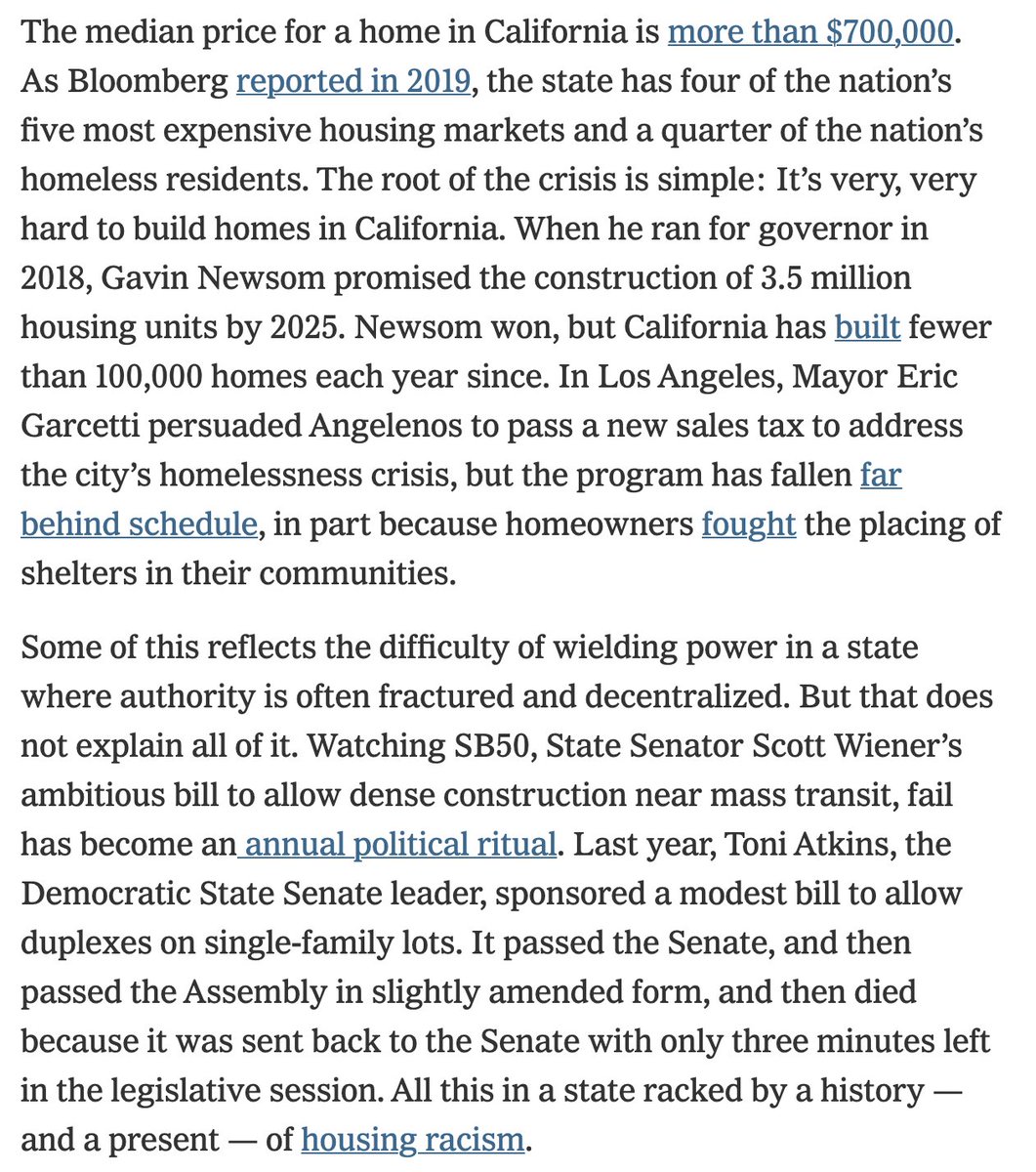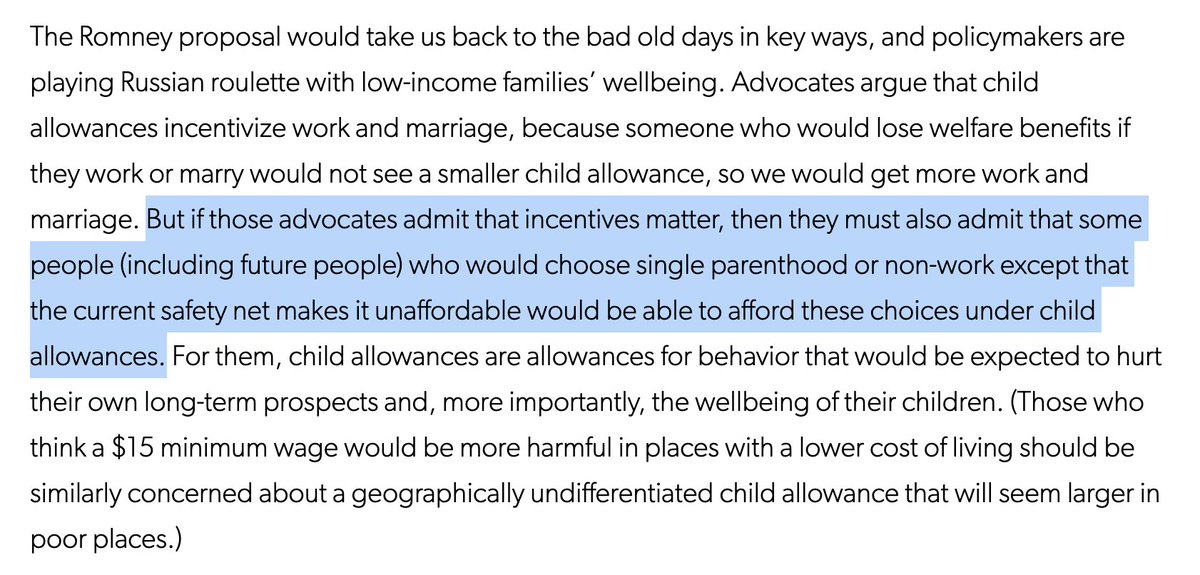
In much of SF, you can’t walk 20 feet without seeing a sign declaring that Black lives matter and no human being is illegal. Those signs sit in yards zoned for single families, in communities that organize against the new housing that would bring those values closer to reality.
Poorer families — disproportionately nonwhite and immigrant — are pushed into long commutes, overcrowded housing and homelessness. Those inequalities have turned deadly during the pandemic.
And it's not just SF:
And it's not just SF:

"What we see at times is people with a Bernie Sanders sign and a ‘Black Lives Matter’ sign in their window, but they’re opposing an affordable housing project or an apartment complex down the street," @Scott_Wiener told me.
There is a danger — not just in California, but everywhere — that politics becomes an aesthetic rather than a program.
It’s a danger on the right, where Donald Trump modeled a presidency that cared more about retweets and owning the libs than passing bills.
It’s a danger on the right, where Donald Trump modeled a presidency that cared more about retweets and owning the libs than passing bills.
It’s also a danger on the left, where the symbols of progressivism are often preferred to the sacrifices and risks those ideals demand.
California, as the biggest state in the nation, and one where Democrats hold total control of the government, carries a special burden. If progressivism cannot work here, why should the country believe it can work anywhere else?
More here: nytimes.com/2021/02/11/opi…
More here: nytimes.com/2021/02/11/opi…
One thing I do want to draw out, though. This isn't all just a question of public opinion. As I argue in the piece, old governance structures and misused laws end up empowering organized incumbents over everyone else.
I remember sitting in an SF city meeting, watching a long line of people testify against a 5G tower. Most people in the community didn't care about the 5G tower, so they didn't show up. That happens on everything. When those meetings have a lot of power, paralysis results.
I'm writing about CA, because it's where I live. But this is a much broader problem. This piece on why New York keeps failing to fix Penn Station is one of the best pieces of the last few years, and a window into the split soul of progressive governance. politico.com/news/magazine/…
• • •
Missing some Tweet in this thread? You can try to
force a refresh



